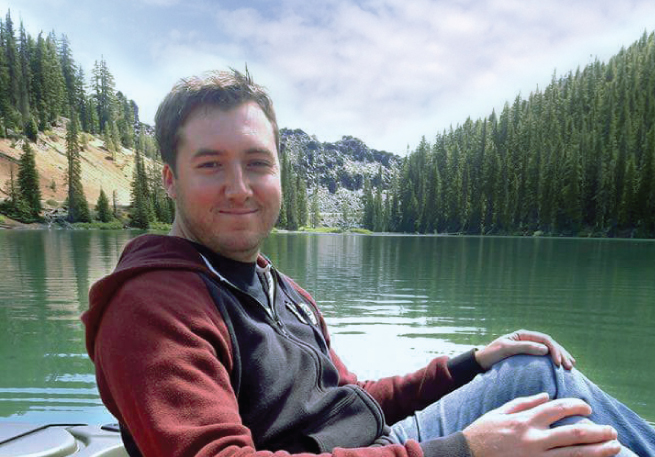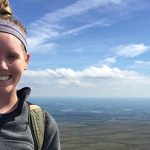
As a renewable materials major with an option in science and engineering, Quinn Smesrud wants to pursue a green building industry career after graduation. She sees the path as a way to combine her knowledge of wood products and her passions for art and environmental stewardship.
This passion for green building and sustainable architecture ignited during the summer of 2019, when she traveled abroad to Slovenia and Italy with the College of Forestry through the “Forest to Frame: Sustainable Manufacturing and Design in Alpine Europe” international program.
“Studying abroad with the College of Forestry was the best experience I have had during my undergraduate career at Oregon State,” Smesrud said. “The opportunity to travel to Alpine Europe and study mass timber in the region where it originated was an incredible experience.”
While in Alpine Europe, Smesrud closely followed the building process from design through construction, which expanded her understanding of the value chain. Touring various places provided her with a holistic view of the industry while experiencing and learning about European culture.
The experience abroad added to her on-campus experience, too. Her favorite class, “Developments of Building Design with Renewable Materials,” allowed her to tour buildings on the Oregon State campus that showcased the engineered wood products students were learning about in class.
“Now, learning about sustainable wood products in class is even more exciting because I can tie what I learn in the classroom to my experiences abroad,” Smesrud said.

Thanks to the generous contributions of college partners, Smesrud has received the Friends of Renewable Materials scholarship since her sophomore year and is actively involved in the campus and Corvallis community.
She worked as a technical assistant for OSU’s Botany and Plant Pathology Department, as a College of Forestry Student Ambassador, and she’s been a member of Kappa Alpha Theta since 2017.
“Being a part of the college has provided me with many opportunities to grow as a leader and be an active member of the Corvallis community,” Smesrud said.
Smesrud’s advice for incoming students is that it is okay not to know what degree you want to pursue as a freshman, and college is the time to explore your interests. As for Smesrud, she hopes to pursue a master’s degree in sustainable architecture after graduation.
“The renewable materials program has shaped me into a well-informed environmentalist with a realistic perspective on the importance of combating climate change,” Smesrud said. “My motivation for pursuing a green career is to be part of the solution to create a more sustainable future.”
This story was part of the College of Forestry’s 2019-2020 Biennial Report.



 One important task of the College of Forestry’s
One important task of the College of Forestry’s 


